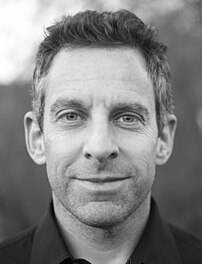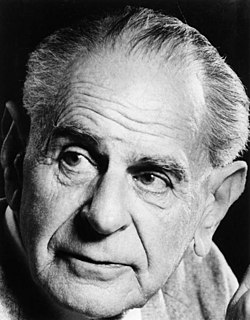 W
WThomas Bayes was an English statistician, philosopher and Presbyterian minister who is known for formulating a specific case of the theorem that bears his name: Bayes' theorem. Bayes never published what would become his most famous accomplishment; his notes were edited and published after his death by Richard Price.
 W
WAvram Noam Chomsky is an American linguist, philosopher, cognitive scientist, historian, social critic, and political activist. Sometimes called "the father of modern linguistics", Chomsky is also a major figure in analytic philosophy, and is one of the founders of the field of cognitive science. He is Laureate Professor of Linguistics at the University of Arizona and Institute Professor Emeritus at the Massachusetts Institute of Technology (MIT), and is the author of more than 100 books on topics such as linguistics, war, politics, and mass media. Ideologically, he aligns with anarcho-syndicalism and libertarian socialism.
 W
WAnthony Clifford Grayling is a British philosopher and author. He was born in Northern Rhodesia and spent most of his childhood there and in Nyasaland. In 2011 he founded and became the first Master of New College of the Humanities, an independent undergraduate college in London. Until June 2011, he was Professor of Philosophy at Birkbeck, University of London, where he taught from 1991. He is also a supernumerary fellow of St Anne's College, Oxford where he formerly taught.
 W
WJürgen Habermas is a German philosopher and sociologist in the tradition of critical theory and pragmatism. His work addresses communicative rationality and the public sphere.
 W
WSamuel Benjamin Harris is an American author, philosopher, neuroscientist, and podcast host. His work touches on a wide range of topics, including rationality, religion, ethics, free will, neuroscience, meditation, psychedelics, philosophy of mind, politics, terrorism, and artificial intelligence. Harris came to prominence for his criticism of religion, and Islam in particular, and is described as one of the "Four Horsemen of Atheism", along with Richard Dawkins, Christopher Hitchens, and Daniel Dennett.
 W
WJesús Mosterín was a leading Spanish philosopher and a thinker of broad spectrum, often at the frontier between science and philosophy.
 W
WRobert Nozick was an American philosopher. He held the Joseph Pellegrino University Professorship at Harvard University, and was president of the American Philosophical Association. He is best known for his books Philosophical Explanations (1981), which included his counterfactual theory of knowledge, and Anarchy, State, and Utopia (1974), a libertarian answer to John Rawls' A Theory of Justice (1971), in which Nozick also presented his own theory of utopia as one in which people can freely choose the rules of the society they enter into. His other work involved ethics, decision theory, philosophy of mind, metaphysics and epistemology. His final work before his death, Invariances (2001), introduced his theory of evolutionary cosmology, by which he argues invariances, and hence objectivity itself, emerged through evolution across possible worlds.
 W
WJosé Ortega y Gasset was a Spanish philosopher and essayist. He worked during the first half of the 20th century, while Spain oscillated between monarchy, republicanism, and dictatorship. His philosophy has been characterized as a "philosophy of life" that "comprised a long-hidden beginning in a pragmatist metaphysics inspired by William James, and with a general method from a realist phenomenology imitating Edmund Husserl, which served both his proto-existentialism and his realist historicism, which has been compared to both Wilhelm Dilthey and Benedetto Croce."
 W
WSir Karl Raimund Popper was an Austrian-British philosopher, academic and social commentator.
 W
WNayef R. F. Al-Rodhan is a Saudi philosopher, neuroscientist, geostrategist, and author. He is an honorary fellow of St. Antony’s College at Oxford University, Oxford, United Kingdom, and senior fellow and head of the Geneva Centre for Security Policy’s Geopolitics and Global Futures Programme, Switzerland, Senior Research Fellow, Institute of Philosophy, School of Advanced Study, University of London, United Kingdom, and Member of the Global Future Council on Frontier Risks at the World Economic Forum. His research focuses on the interplay between: Analytic Neurophilosophy, Geopolitics, Global Futures, Outer space security, Cultural discourse and synergies, Disruptive technologies, International Relations and Policy.
 W
WJohn Rogers Searle is an American philosopher. He was Willis S. and Marion Slusser Professor Emeritus of the Philosophy of Mind and Language and Professor of the Graduate School at the University of California, Berkeley. Widely noted for his contributions to the philosophy of language, philosophy of mind, and social philosophy, he began teaching at UC Berkeley in 1959.
 W
WSocrates was a Greek philosopher from Athens who is credited as one of the founders of Western philosophy, and as being the first moral philosopher of the Western ethical tradition of thought. An enigmatic figure, he authored no texts, and is known chiefly through the accounts of classical writers composing after his lifetime, particularly his students Plato and Xenophon. Other sources include the contemporaneous Antisthenes, Aristippus, and Aeschines of Sphettos. Aristophanes, a playwright, is the main contemporary author to have written plays mentioning Socrates during Socrates' lifetime, though a fragment of Ion of Chios' Travel Journal provides important information about Socrates' youth.
 W
WMaximilian Karl Emil Weber was a German historian, sociologist, jurist, and political economist, who is regarded today as one of the most important theorists on the development of modern Western society. His ideas would profoundly influence social theory and social research. Despite being recognized as one of the fathers of sociology, along with Karl Marx, Auguste Comte and Émile Durkheim, Weber never saw himself as a sociologist, but as a historian.
 W
WAlbrecht Wellmer was a German philosopher at the Freie Universität Berlin.
 W
WGeorg Henrik von Wright was a Finnish philosopher.
 W
WEliezer Shlomo Yudkowsky is an American artificial intelligence (AI) researcher and writer best known for popularizing the idea of friendly artificial intelligence. He is a co-founder and research fellow at the Machine Intelligence Research Institute (MIRI), a private research nonprofit based in Berkeley, California. His work on the prospect of a runaway intelligence explosion was an influence on Nick Bostrom's Superintelligence: Paths, Dangers, Strategies. An autodidact, Yudkowsky did not attend high school or college.